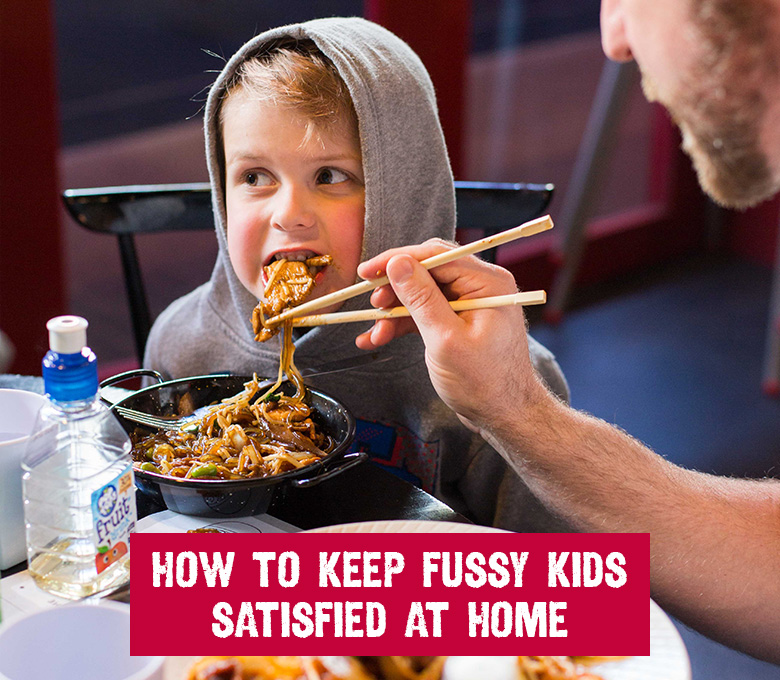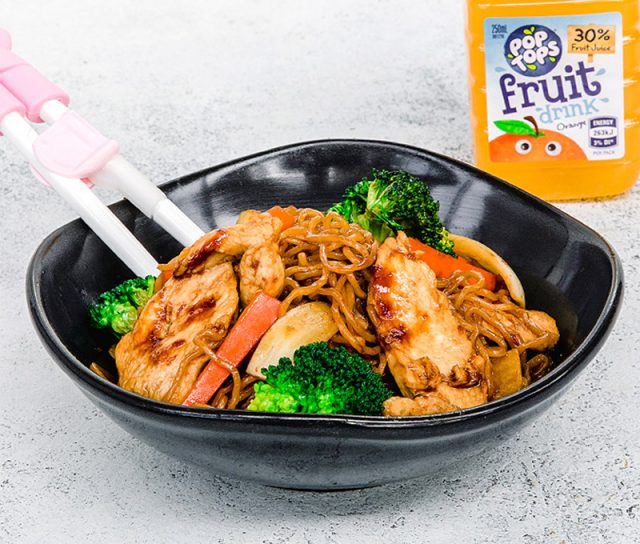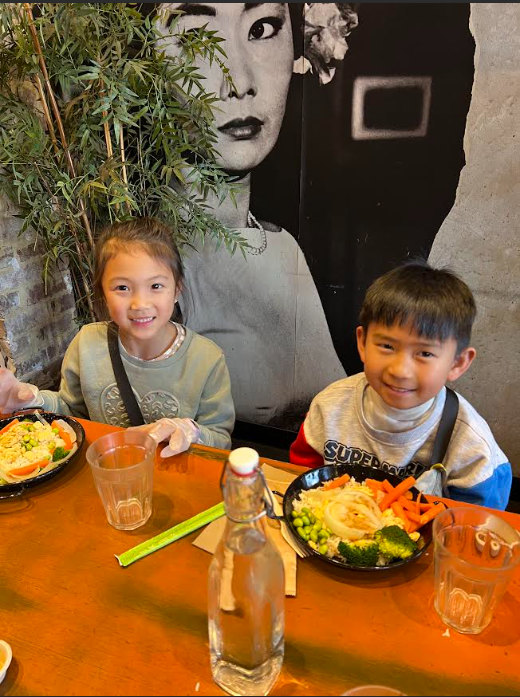

As parents, one of the most common challenges we face is getting our kids to eat healthily and happily. It can be even more difficult when dealing with fussy eaters who seem to have a new food aversion every week. At P’Nut Asian Kitchen, we understand the struggle and believe that with a little creativity and the right approach, mealtime can be an enjoyable experience for the whole family. Here are some tried-and-true tips to keep even the pickiest eaters satisfied at home.
Get Them Involved in Cooking
Kids are more likely to eat something they’ve helped prepare. Involving them in the cooking process can be a fun and educational experience. Let them help with washing vegetables, mixing ingredients, or even simple tasks like setting the table. At P’Nut Asian Kitchen, we often find that children who participate in the kitchen are more excited to try the dishes they helped create.
Tip:
Start with simple and safe tasks. For instance, they can help make a colorful vegetable stir-fry by choosing their favorite veggies and mixing them in the wok under your supervision.

Make Food Fun and Engaging
Presentation can make a big difference. Fun shapes, vibrant colors, and creative plating can turn an ordinary meal into an exciting adventure. Use cookie cutters to create fun shapes with fruits, vegetables, or sandwiches. Arrange food on the plate to form a picture or a scene, making the meal visually appealing.
Tip:
Create a “build-your-own” meal experience, such as a taco or noodle bar. Lay out a variety of healthy ingredients and let your child assemble their dish. This interactive approach can make mealtime more enjoyable and less stressful.

Offer Choices and Flexibility
Fussy eaters often resist when they feel forced to eat something they don’t like. Offering choices within a set framework gives them a sense of control. Instead of asking, “Do you want broccoli for dinner?” try, “Would you like broccoli or carrots with your dinner?” This subtle shift can make a big difference in their willingness to try new foods.
Tip:
When dining at P’Nut Asian Kitchen, we offer a range of dishes that can cater to different tastes. At home, replicate this by providing a variety of options within a meal, ensuring there’s always something on the plate they are familiar with and enjoy.

Introduce New Foods Gradually
Introducing new foods gradually can help children adapt to different tastes and textures without feeling overwhelmed. Pair new foods with familiar favorites and encourage them to try a small bite without pressure. Consistency is key; it might take several tries before they accept a new food.
Tip:
Start with a small portion of a new dish from our menu, like a mild curry or a flavorful stir-fry, and serve it alongside their favorite rice or noodles. This approach helps them explore new flavors while still enjoying their meal.
Set a Positive Example
Children often mimic the behaviors they see in their parents. If you demonstrate a positive attitude towards trying new foods and eating a balanced diet, your children are more likely to follow suit. Make mealtime a family affair where everyone sits down together and enjoys the meal.
Tip:
Share stories about the origins of different dishes or ingredients, making it a learning experience. At P’Nut Asian Kitchen, we celebrate the rich culinary traditions of Asia, and sharing these stories can spark curiosity and interest in your child.

Create a Calm and Enjoyable Mealtime Atmosphere
A calm and pleasant atmosphere can significantly impact a child’s willingness to eat. Avoid distractions like TV or mobile devices and create a routine where mealtime is a special time for the family to connect. Encourage positive conversation and make it a stress-free environment.
Tip:
Set the table nicely, even for regular family dinners. Use colorful placemats, fun utensils, or even a small centerpiece to make the meal feel special.

Respect Their Appetite
Forcing a child to eat when they’re not hungry can create negative associations with food. It’s important to respect their appetite and avoid pressuring them to clean their plate. Offer small portions and allow them to ask for more if they’re still hungry.
Tip:
At P’Nut Asian Kitchen, our portion sizes are designed to be satisfying without overwhelming. At home, serve small portions and offer seconds if desired, ensuring your child can enjoy their meal without feeling forced.

Incorporate Nutritious Ingredients in Creative Ways
Sneaking nutritious ingredients into meals can help ensure your child gets the necessary nutrients without even realizing it. For example, blend vegetables into sauces, add finely chopped greens to meatballs, or mix fruits into smoothies.
Tip:
Our dishes often incorporate a variety of vegetables and lean proteins in delicious ways. Try making a homemade version of our popular dishes, like curly wurly noodles, lucky fried rice, chicken bites with rice to ensure your child gets a balanced diet.
Make Healthy Snacks Readily Available
Kids love to snack, so having healthy options readily available can encourage better eating habits. Keep a variety of fruits, vegetables, whole grains, and proteins within easy reach.
Prepare snack packs in advance to make it easy for them to grab something nutritious on the go.
Have your kids tried Roti Sangas from P’Nut. You could try making them a version at home too by adding chicken or veggies of your choice and putting in a Grill press with some melted cheese!
Tip:
Create snack boxes with a mix of nuts, dried fruits, and veggie sticks. This not only provides a healthy snack but also exposes them to different textures and flavors.

Be Patient and Consistent
Changing a child’s eating habits takes time and patience. Consistency is crucial, so continue to offer a variety of foods and encourage them to try new things. Celebrate small victories and avoid making a big deal out of food refusals.
Tip:
Keep mealtime positive and avoid turning it into a battleground. Focus on creating enjoyable experiences around food, and gradually, their tastes will expand.

At P’Nut Asian Kitchen, we believe that food is more than just sustenance; it’s an experience to be enjoyed and shared. By incorporating these tips, you can turn mealtime into a fun, engaging, and stress-free experience for both you and your child. Remember, patience and creativity are your best allies in satisfying even the fussiest eaters at home. If the meal doesn’t turn out to be the way you want it to – you can always order from us!




